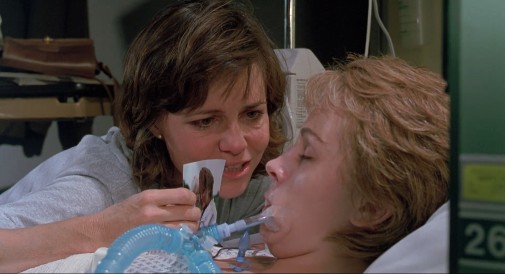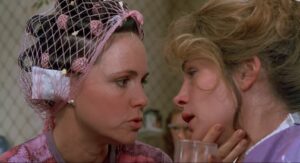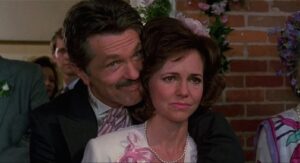
“Steel Magnolias” review: Barth Hotel show full of hairspray and hope
Let’s start with hope. For Senior Housing Options‘ play/fundraiser, hope takes root offstage. The Denver organization provides affordable housing for seniors and developmentally and physically challenged adults. The historic Barth Hotel — its lobby turned into a stage for the show — is just one of the 14 dwellings denizens can call home.
“Steel Magnolias” makes the sixth production the organization has mounted. And what tart fun and ache it offers.
Robert Harling’s salon play is smothered — in the Southern cuisine sense of the word — with savory repartee. Written as a response to Harling’s sister’s death, it also has heartache.

His characters — Ouiser, Truvy, Clairee, M’Lynn, Annelle and Shelby — offer a showcase for some of the town’s sharpest talents. Billie McBride (the title character in last year’s production of “Driving Miss Daisy”) returns to the Barth lobby as perpetual crab Louisa “Ouiser” Boudreaux.
Patty Figel is well-to-do widow and football aficionado Clairee. Rachel Fowler takes on the role of concerned mother M’Lynn Eatenton. Rhonda Brown has her way with Southern wisecracks and wisdom as beautician Truvy.
The action — OK, the gabfest — takes place in Truvy’s salon where the ladies of Chinquapin, La., have their hair coiffed, their nails done, their hankering for gossip sated.
Recent beauty school grad Annelle (Devon James) arrives with an air of nervous mystery right as M’Lynn’s daughter Shelby (Adrian Egolf) is set to marry. It’s Shelby’s struggles with Type 1 diabetes that acts as catalyst here.

The rub for any production of “Steel Magnolias” is how to work with but also against the iconic vibe these characters have, thanks in no small measure to a very successful big-screen adaptation.
It’s difficult not to hear the voices of Shirley Mac-Laine, Olympia Dukakis and Dolly Parton in the quips floating above the Aqua Net mist.
Yet this nimble cast rises to that challenge and to the demands of Harling’s dialogue, which are gymnastic. They stick the landings.
But it’s not only the zingers that stay with you. Fowler is no stranger to delivering roiled emotions. Her stricken turn in the final scenes of the play feels differently anguished than those of her big-screen counterpart. We like her, we really like her.
